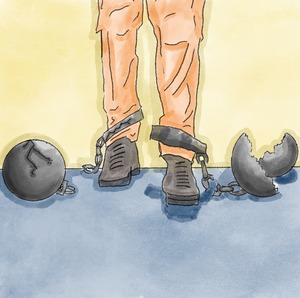Peris L, Szerman N. Partial Agonists and Dual Disorders: Focus on Dual Schizophrenia. Frontiers in Psychiatry [Internet]. 2021 Dec 16;12:769623. Available from: https://www.ncbi.nlm.nih.gov/pmc/articles/PMC8716462/
Negrete JC. Clinical Aspects of Substance Abuse in Persons with Schizophrenia. The Canadian Journal of Psychiatry [Internet]. 2003 Feb [cited 2025 Jul 10];48(1):14–21. Available from: https://journals.sagepub.com/doi/10.1177/070674370304800104
Brady KT, Kalin NH. Substance Use Disorders: Confronting Addiction From Prevention to Recovery. American Journal of Psychiatry [Internet]. 2024 May 1;181(5):347–8. Available from: https://pubmed.ncbi.nlm.nih.gov/38706333/
Masroor A, Khorochkov A, Prieto J, Singh KB, Nnadozie MC, Abdal M, et al. Unraveling the Association Between Schizophrenia and Substance Use Disorder-Predictors, Mechanisms and Treatment Modifications: A Systematic Review. Cureus [Internet]. 2021 Jul 29;13(7). Available from: https://www.ncbi.nlm.nih.gov/pmc/articles/PMC8405179/
Nathan R, Lewis E. Assessment of coexisting psychosis and substance misuse: complexities, challenges and causality. BJPsych Advances [Internet]. 2020 Jul 20;27(1):1–11. Available from: https://www.cambridge.org/core/journals/bjpsych-advances/article/assessment-of-coexisting-psychosis-and-substance-misuse-complexities-challenges-and-causality/AA565FFAE9E4F283AD6398447A226198
Lundin NB, Blouin AM, Cowan HR, Moe AM, Wastler HM, Breitborde NJ. Identification of Psychosis Risk and Diagnosis of First-Episode Psychosis: Advice for Clinicians. Psychology Research and Behavior Management [Internet]. 2024 Mar 21;17:1365–83. Available from: https://pubmed.ncbi.nlm.nih.gov/38529082/
DSM-V: American Psychiatric Association. Diagnostic and Statistical Manual of Mental Disorders (5th edn). APA, 2013.
Wilson L, Szigeti A, Kearney A, Clarke M. Clinical characteristics of primary psychotic disorders with concurrent substance abuse and substance-induced psychotic disorders: A systematic review. Schizophrenia Research [Internet]. 2018 Jul;197:78–86. Available from: https://pubmed.ncbi.nlm.nih.gov/29117908/
Sulzer D. How Addictive Drugs Disrupt Presynaptic Dopamine Neurotransmission. Neuron [Internet]. 2011 Feb;69(4):628–49. Available from: https://www.ncbi.nlm.nih.gov/pmc/articles/PMC3065181/
Beckmann D, Lowman KL, Nargiso J, McKowen J, Watt L, Yule AM. Substance- induced Psychosis in Youth. Child and Adolescent Psychiatric Clinics of North America [Internet]. 2020 Jan;29(1):131–43. Available from: https://pubmed.ncbi.nlm.nih.gov/31708042/
Vassos E. What Is the Link between Substance- Induced Psychosis and Primary Psychotic Disorders? The American Journal of Psychiatry [Internet]. 2023 Jun 1;180(6):404–6. Available from: https://pubmed.ncbi.nlm.nih.gov/37259511/
Starzer MSK, Nordentoft M, Hjorthøj C. Rates and Predictors of Conversion to Schizophrenia or Bipolar Disorder Following Substance-Induced Psychosis. American Journal of Psychiatry [Internet]. 2018 Apr;175(4):343–50. Available from: https://pubmed.ncbi.nlm.nih.gov/29179576/
Subodh BN, Sahoo S, Basu D, Mattoo SK. Age of onset of substance use in patients with dual diagnosis and its association with clinical characteristics, risk behaviors, course, and outcome: A retrospective study. Indian Journal of Psychiatry [Internet]. 2019;61(4):359–68. Available from: https://www.ncbi.nlm.nih.gov/pmc/articles/PMC6657549/
Buchy L, Cadenhead KS, Cannon TD, Cornblatt BA, McGlashan TH, Perkins DO, et al. Substance use in individuals at clinical high risk of psychosis. Psychological Medicine [Internet]. 2015 Mar 2;45(11):2275–84. Available from: https://pubmed.ncbi.nlm.nih.gov/25727300/
McHugh MJ, McGorry PD, Yuen HP, Hickie IB, Thompson A, de Haan L, et al. The Ultra-High-Risk for psychosis groups: Evidence to maintain the status quo. Schizophrenia Research [Internet]. 2018 May;195:543–8. Available from: https://pubmed.ncbi.nlm.nih.gov/29055567/
Nawi AM, Ismail R, Ibrahim F, Hassan MR, Manaf MRA, Amit N, et al. Risk and protective factors of drug abuse among adolescents: A systematic review. BMC Public Health [Internet]. 2021 Nov 13;21(1). Available from: https://bmcpublichealth.biomedcentral.com/articles/10.1186/s12889-021-11906-2
Hjorthøj C, Stürup AE, McGrath JJ, Nordentoft M. Years of potential life lost and life expectancy in schizophrenia: a systematic review and meta-analysis. The Lancet Psychiatry [Internet]. 2017 Apr;4(4):295–301. Available from: https://www.thelancet.com/journals/lanpsy/article/PIIS2215-0366(17)30078-0/fulltext
Pizzol D, Trott M, Butler L, Barnett Y, Ford T, Neufeld SA, et al. Relationship between severe mental illness and physical multimorbidity: A meta-analysis and call for action. BMJ Mental Health [Internet]. 2023 Oct 1;26(1). Available from: https://mentalhealth.bmj.com/content/26/1/e300870
Skarstein S, Lien L, Abebe DS. The burden of somatic diseases among people with alcohol- and drug use disorders are influenced by mental illness and low socioeconomic status. A registry-based cohort study in Norway. Journal of Psychosomatic Research [Internet]. 2023 Feb;165:111137. Available from: https://www.sciencedirect.com/science/article/pii/S0022399922004226?via%3Dihub
Szerman N, Torrens M, Maldonado R, Balhara YPS, Salom C, Maremmani I, et al. Addictive and other mental disorders: a call for a standardized definition of dual disorders. Translational Psychiatry [Internet]. 2022 Oct 13;12(1). Available from: https://pubmed.ncbi.nlm.nih.gov/36229453/
Guo J, Lv X, Liu Y, Kong L, Qu H, Yue W. Influencing factors of medication adherence in schizophrenic patients: a meta- analysis. Schizophrenia [Internet]. 2023;9(1):1–8. Available from: https://www.nature.com/articles/s41537-023-00356-x
Rivelli A, Fitzpatrick V, Nelson M, Laubmeier K, Zeni C, Mylavarapu S. Real-world predictors of relapse in patients with schizophrenia and schizoaffective disorder in a large health system. Schizophrenia [Internet]. 2024 Feb 29;10(1):28. Available from: https://www.nature.com/articles/s41537-024-00448-2
Swendsen J, Ben-Zeev D, Granholm E. Real-Time Electronic Ambulatory Monitoring of Substance Use and Symptom Expression in Schizophrenia. American Journal of Psychiatry [Internet]. 2011 Feb;168(2):202–9. Available from: https://pubmed.ncbi.nlm.nih.gov/21078705/
Bahorik AL, Newhill CE, Queen CC, Eack SM. Under-reporting of drug use among individuals with schizophrenia: prevalence and predictors. Psychological Medicine [Internet]. 2013 Apr 3;44(1):61–9. Available from: https://pubmed.ncbi.nlm.nih.gov/23551851/
Barlati S, Nibbio G, Vita A. Evidence-based Psychosocial Interventions in schizophrenia: a Critical Review. Current opinion in psychiatry [Internet]. 2024 Feb 15;37(3). Available from: https://www.ncbi.nlm.nih.gov/pmc/articles/PMC10990032/






